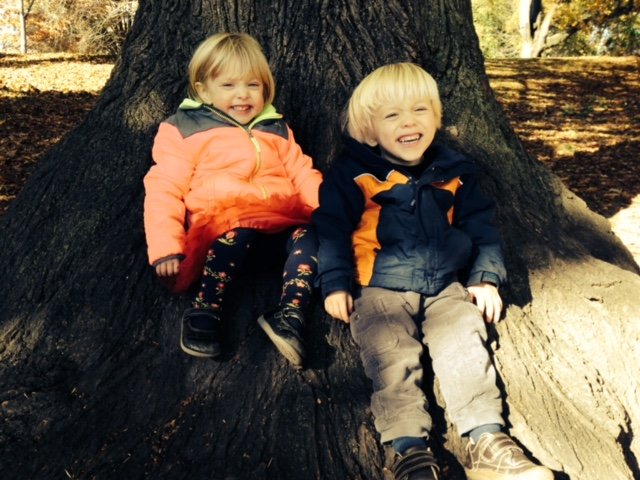“Vulnerability is based on mutuality and requires boundaries and trust. It’s not oversharing, it’s not purging, it’s not indiscriminate disclosure, and it’s not celebrity-style social media information dumps. Vulnerability is about sharing our feelings and our experiences with people who have earned the right to hear them.”
“Beauty has no boundaries, no rules, no colors. Beauty is like a religion. You can include everything inside it.”
“We must broaden the definition of who our neighbors are, and extend the boundaries of our interest and empathy.”
In the classic novel, Lonesome Dove, set in 1875, Larry McMurty not only masterly develops the characters of each of the people involved in cowboy life during that time, but also graphically describes the crossing, crashing, and crushing of geographical borders and personal boundaries. The book, published in 1985, and transformed into a TV mini-series in 1989, captured the hearts of millions of people. On the surface, it’s a story of two Texas Rangers and a group of ranch hands, who decide to drive a huge herd of cattle from Lonesome Dove, Texas through the endless prairies and multiple rivers of the plains, to the wide-open spaces of Montana. In the process, women are raped and brutalized by Indians, cowboys, and bandits; while young men and older seasoned cowboys are bitten by snakes, frozen by blizzards, battered by storms, and roasted under relentless heat. It’s fair to say that while they all made their way over physical borders, their personal boundaries may have been tested and violated in even more severe ways.

After ploughing through Lonesome Dove, I read Go, Went, Gone, a new book set in contemporary Germany by Jenny Erpenbeck. In this compelling novel, Erpenbeck describes the tragic and troubling experiences not only of Germans overcoming the invisible border between West and East Berlin but also of Africans from Libya, Ghana, Niger, Burkino Faso etc. crossing multiple borders to establish a new life in Europe. As we know all too well, migrants crossing borders have not exactly been welcomed into lands of opportunity.
The principle character in this story has just retired from an Institute after a successful career as an author and lecturer and now finds himself with more time on his hands than he knows what do with and with less space for him in the hearts of minds of the people with whom he worked for decades than he could have ever anticipated – when he went into retirement he was gone from their busy lives. When he stumbles across migrants protesting their treatment, he throws himself fully into their causes and border crossing experiences and discovers in the process that he needs to re-examine all the boundaries he had established for himself.
These two books led me to think more deeply about borders and boundaries. Serendipitously, as I was pondering these issues and attempting to reach some clarity about when borders and boundaries are necessary, where they can be limiting, and how we can expand them, I watched an hour presentation by Brene Brown in which she shared moving stories about how boundaries can help us and hurt us.
Brene Brown, of course, is a researcher at the University of Houston who has studied shame, vulnerability, and courage and now works with organizational leaders and others to help them decide which boundaries and borders need to be defined or expanded. For example, the MeToo movement has enlightened all of us who wish to be enlightened that it’s important to respect personal space and boundaries. At the same time, in a global economy, we need to work across borders and respond appropriately to different cultures and norms. Also, within our organizations, we need to break down the silos that keep teams from working more collaboratively. Brown examines all of these heavy issues with a light-hearted but substantive approach. She is truly a gifted author and lecturer who connects with people in compelling ways.It seems to me that borders and boundaries are presenting challenges to individuals, organizations, and nations on multiple levels. Therefore, I thought the topic might be post-worthy.
For me, borders and boundaries can be for better or for worse. In order to make the right decisions in situations involving them, it’s necessary to make accurate discriminations and engage in sensitive communications. This is not an easy issue. For instance, if you subscribe to open borders, then what will you do when 100 refugees show up at your door seeking shelter and food, i.e. given your position on national borders, what are your principles on personal boundaries?
If you are working in an open work environment in which space is shared and conversations are overheard, how do you establish boundaries that enable you to feel safe and secure without coming across as closed and standoffish?
On a personal level, what borders and boundaries do you establish with friends and loved ones that protect your personal space but still enable you to be open, welcoming and to form meaningful connections?
Going deeper, what boundaries limit your physical, emotional, intellectual and spiritual growth? How often do you “close your borders?” How open are you to new, different, or fresh ideas?” How protective are you of your thoughts and feelings?” How trapped do you feel in your body?” How connected are you to yourself, to others, and to a larger purpose? How often do you experience full joy and boundarylessness in your meditation? How big are the barriers between your head and your heart? How often do you feel at One with the Universe with no sense of separation?
Yes, these are difficult challenges on all fronts. Here are a few more questions we ought to be living in. You may want to add your own.
- How do we establish borders AND welcome immigrants?
- How do we create psychologically safe work environments for all races, genders, and orientations?
- How can we open our minds AND our hearts?
- How do free our souls to soar?
- How do we break down the tribal barriers that divide us?
I agree with Brene Brown’s point of view that the answers to all of these questions require courage. To me, courage is the ability to limit or expand your boundaries in the face of risk, uncertainty, and emotional vulnerability. It’s a combination of accurate discriminations and sensitive communications. As Brown implies in the opening quote, the courage to be vulnerable does not mean boundless self-disclosure; it means making good choices about what we share and with whom we share it. When we open our borders and boundaries we are going to face risks, uncertainties, and vulnerabilities. We need to have the courage to take those risks and the wisdom to know when it will be for better for worse.
In my life, I have had the privilege to cross over hundreds of borders, the honor of crossing into the close, personal boundaries of many friends and loved ones, and the sensation of feeling the boundarylessness of deep meditation. I will forever be grateful for and appreciative of all of those experiences.
As a Vietnam War veteran, I have also crossed borders and crashed boundaries that caused great harm. I not only participated in an aggressive and unnecessary border invasion, but also have intruded personal boundaries in a different culture that I didn’t understand. So there is my long overdue MeToo apology. I will be forever regretful.
Here is what I know:
- People are not defined by what side of the border they are on.
- People define themselves by how open their boundaries are.
- People who cross borders often learn more and contribute more.
- People with more open boundaries often have stronger connections.
- People with no boundaries inappropriately expose themselves and unintentionally exhaust others.
- Organizations and countries that collaborate across borders are more successful than those who don’t.
- Retreating behind more and more protective borders leads to smaller and smaller people, organizations, and nations.
- Each of us must understand that people have different boundaries that deserve to be honored and respected.
- Intrusion and invasion are different levels of offense. Intruding in someone’s personal space is wrong; invading someone’s private border is criminal.
What is true for me is that beauty, love, and creativity have no boundaries. And, we don’t need to live within the borders that others have defined for us if those borders and boundaries limit growth and compassion. Furthermore, I still believe it’s possible to be boundlessly accepting, forgiving, compassionate and grateful. We may need personal, organizational, and national boundaries to protect our sense of self and our feelings of security, but I don’t see the value of putting boundaries on our light, love, creativity, appreciation, and forgiveness.
May we be wise in the borders and boundaries we need to establish to live, learn, and work safely and effectively; AND may we be courageous in opening up the boundaries of what’s possible for ourselves, our loved ones, and the world.



Beautifully written Ricky! Thank you!
Thanks Rick for another gem! Great piece.